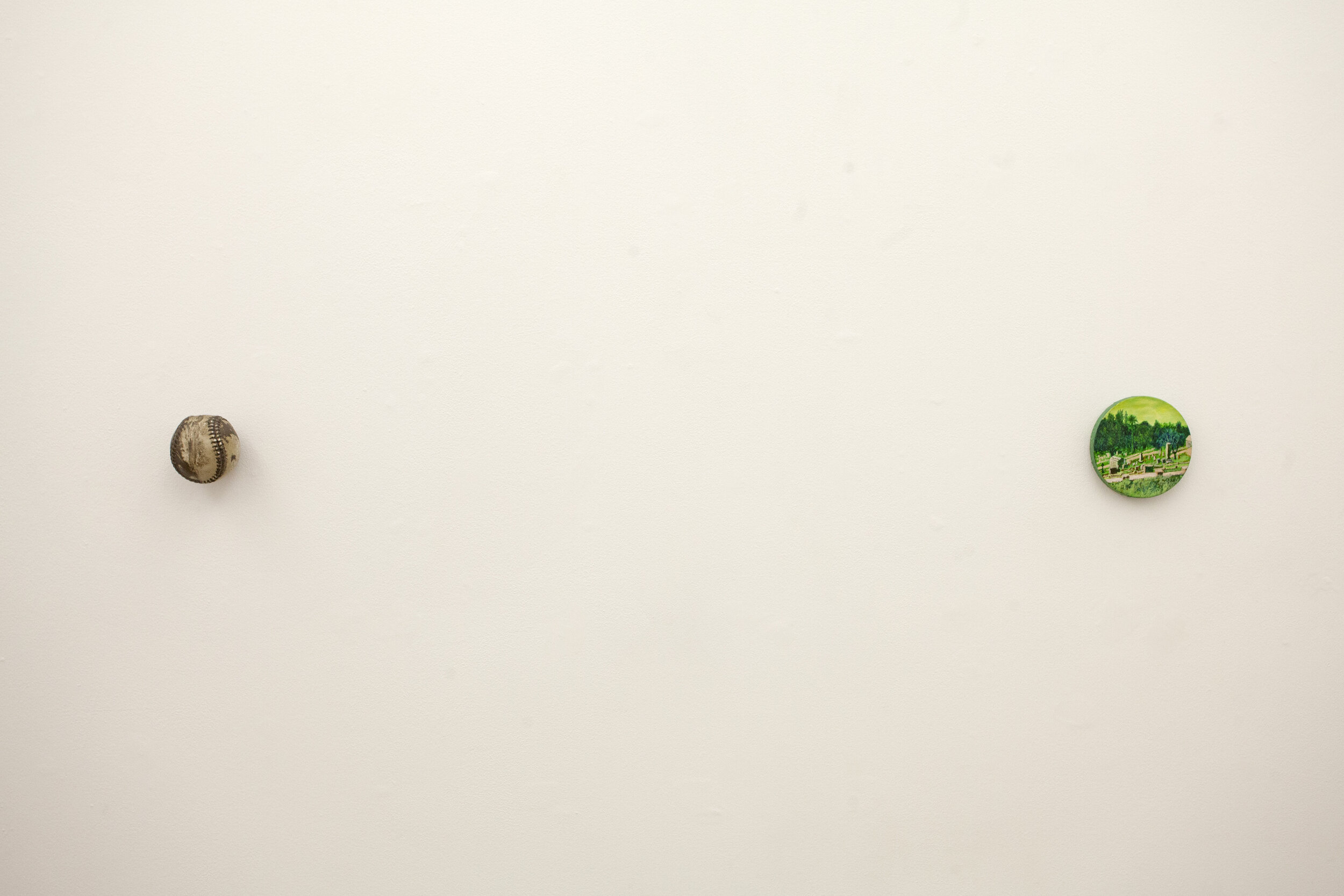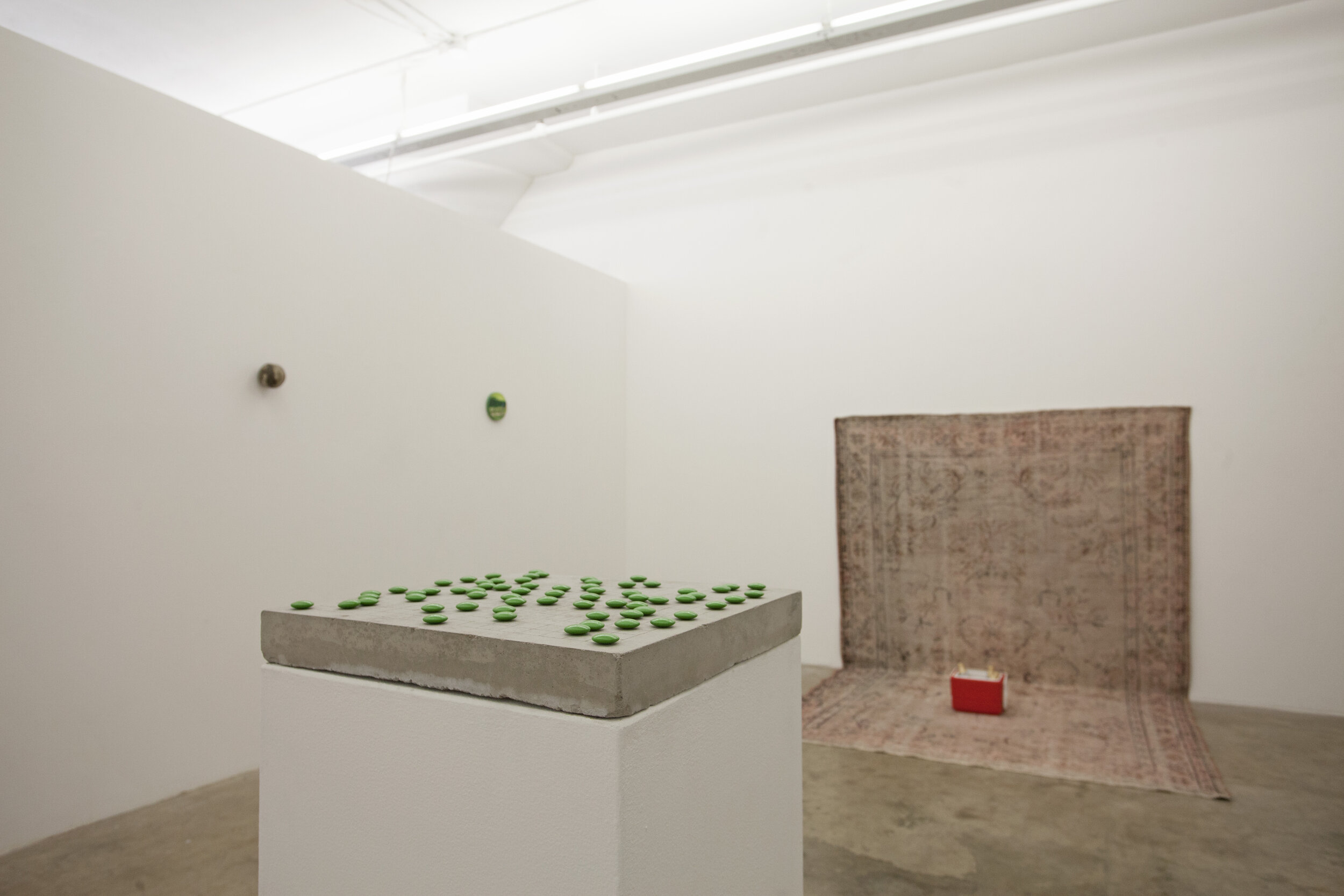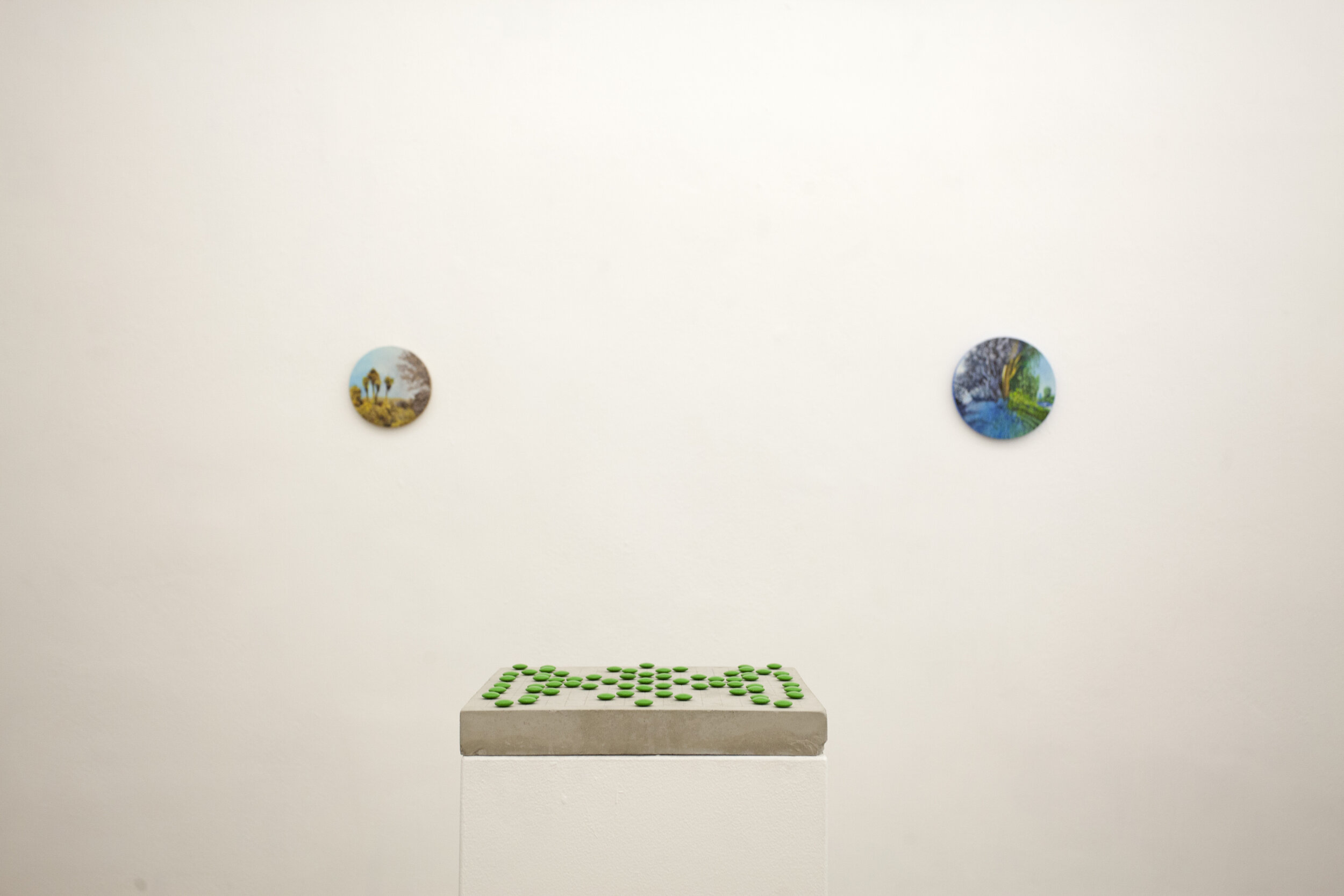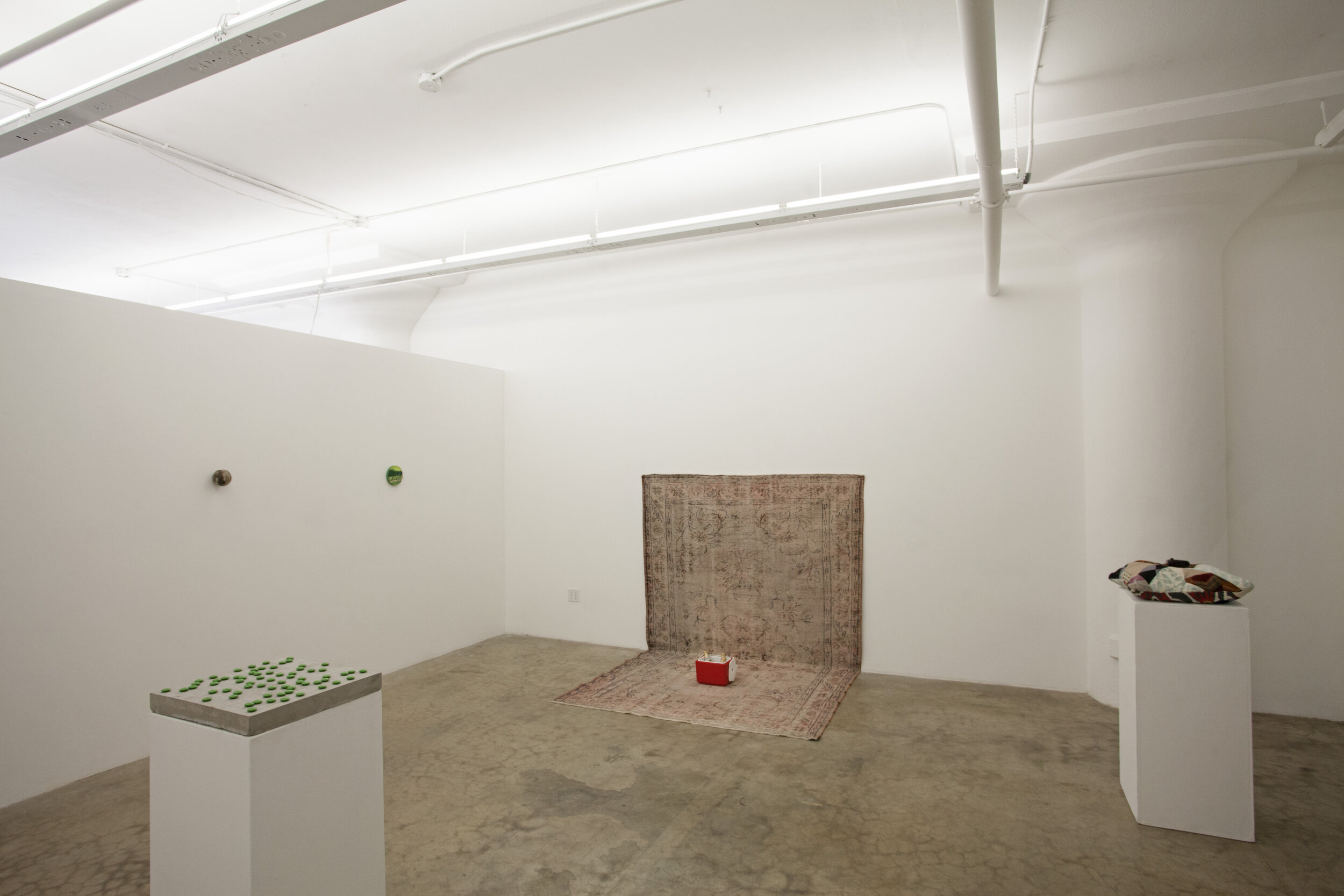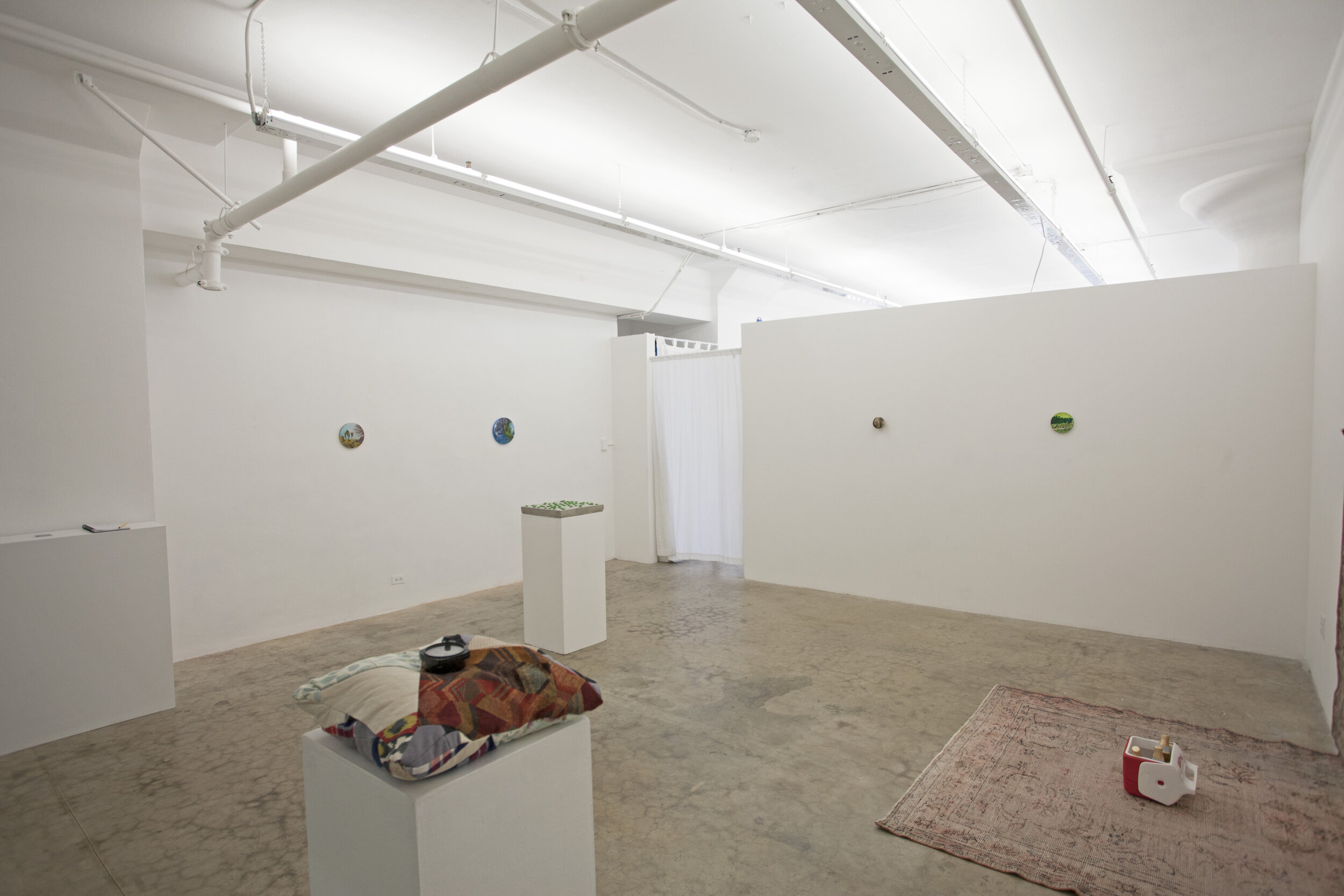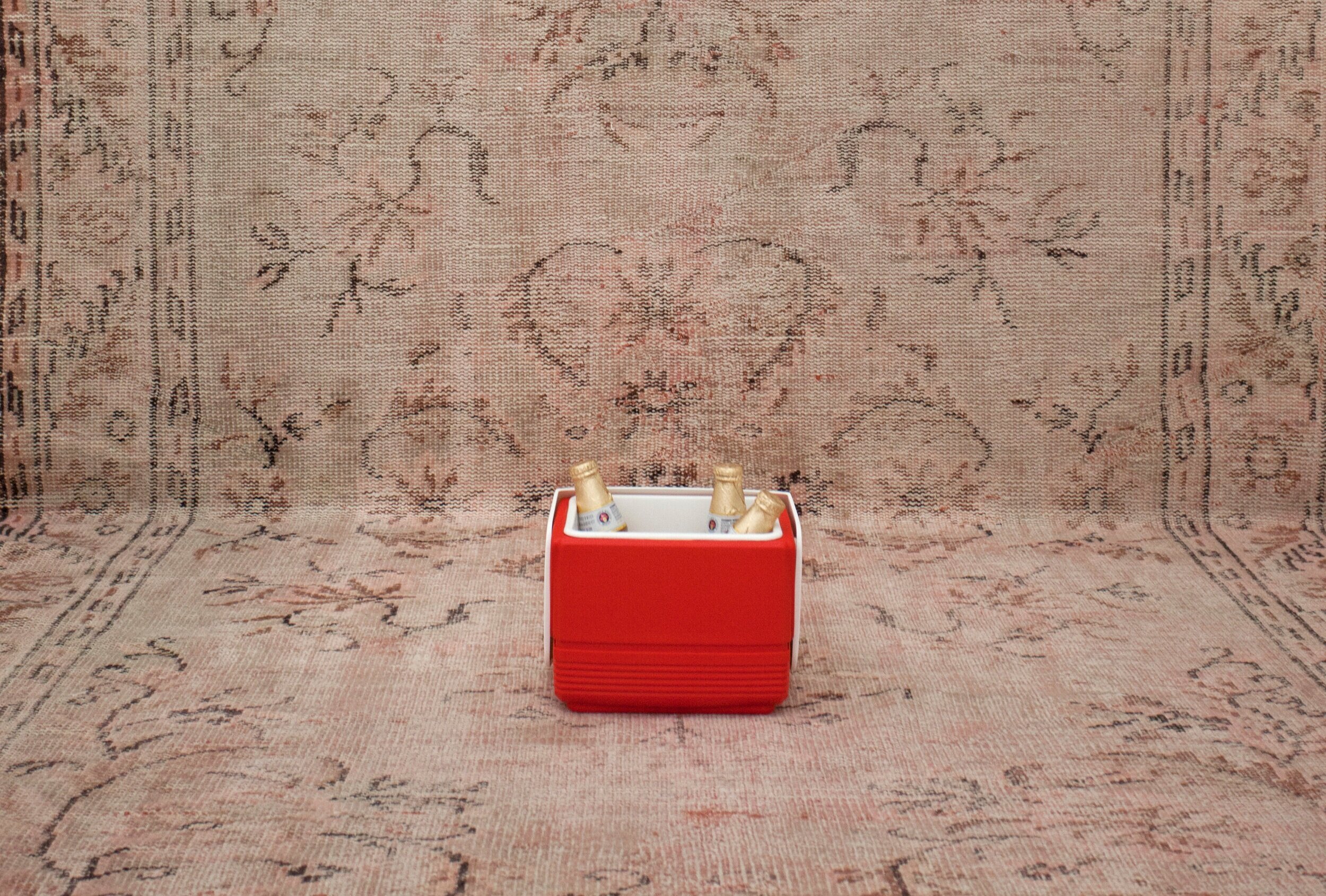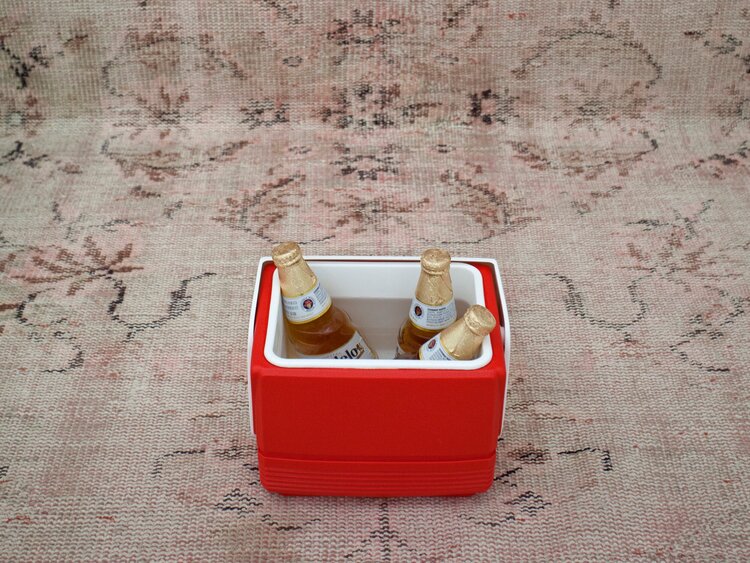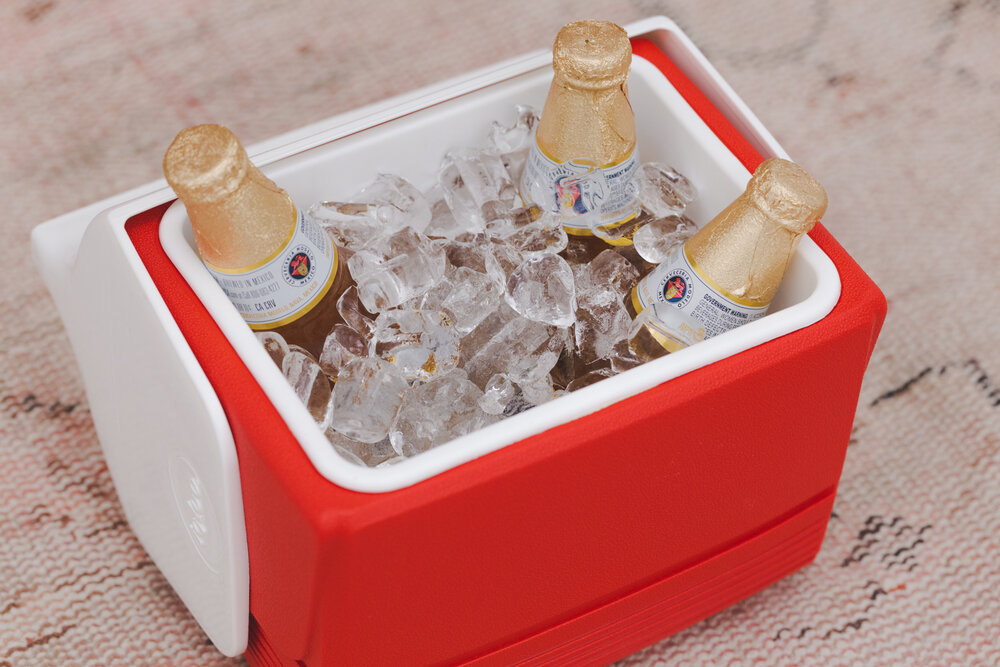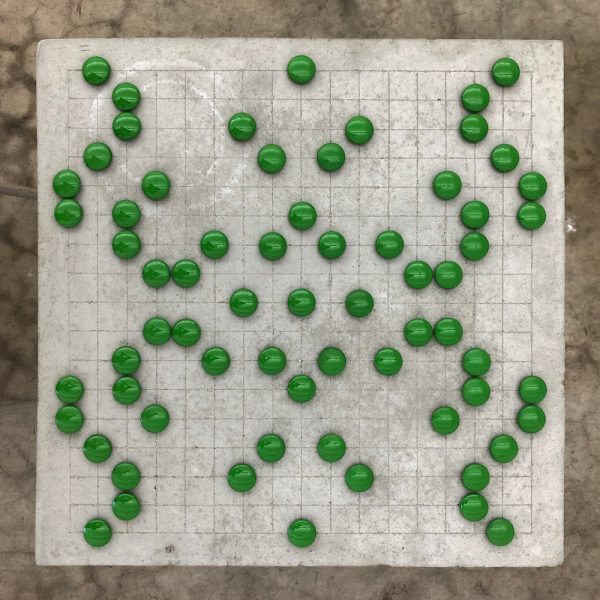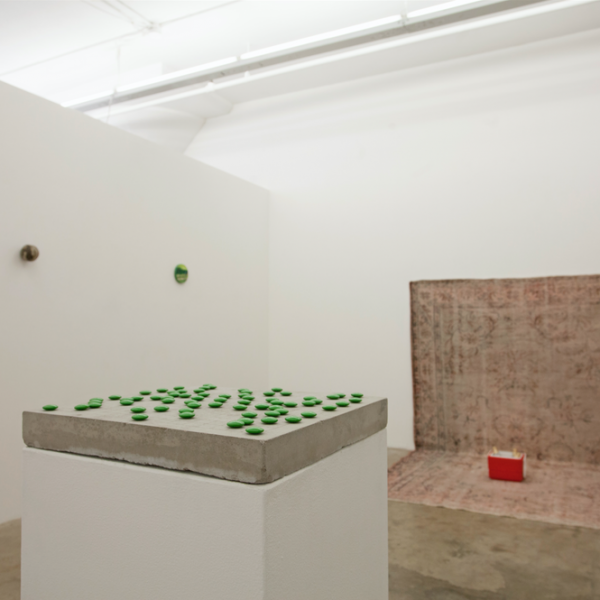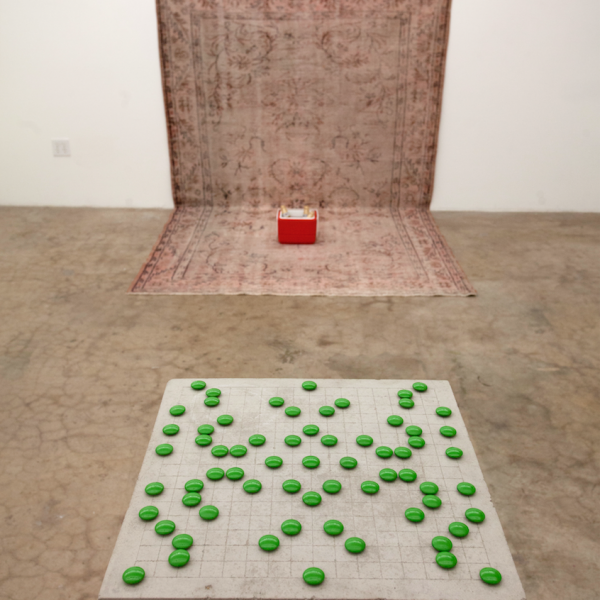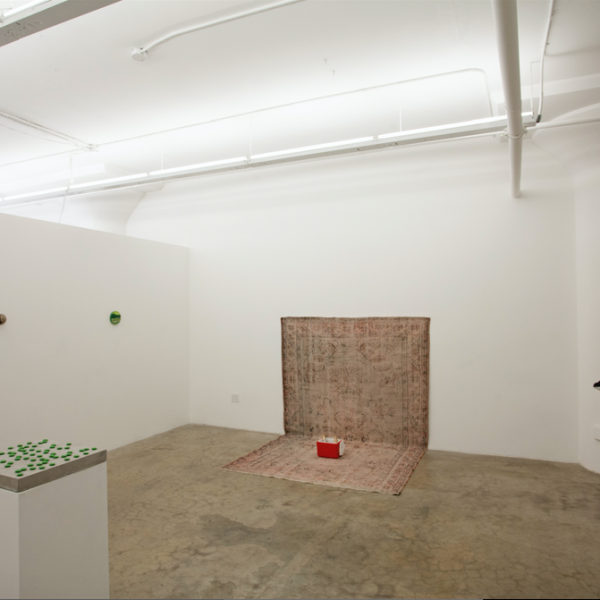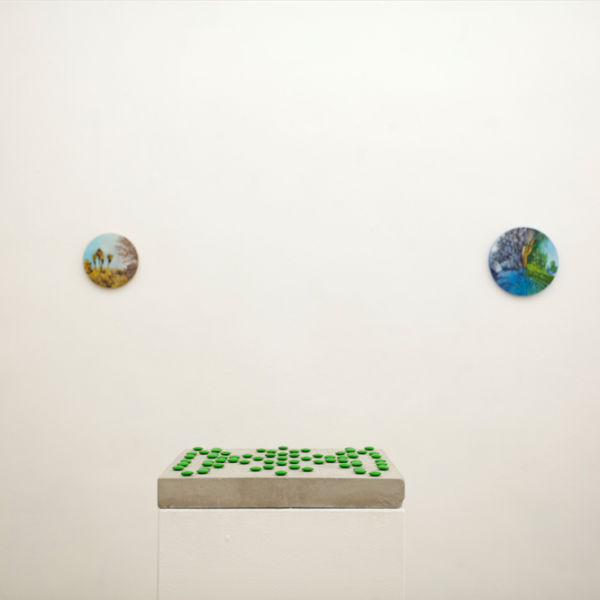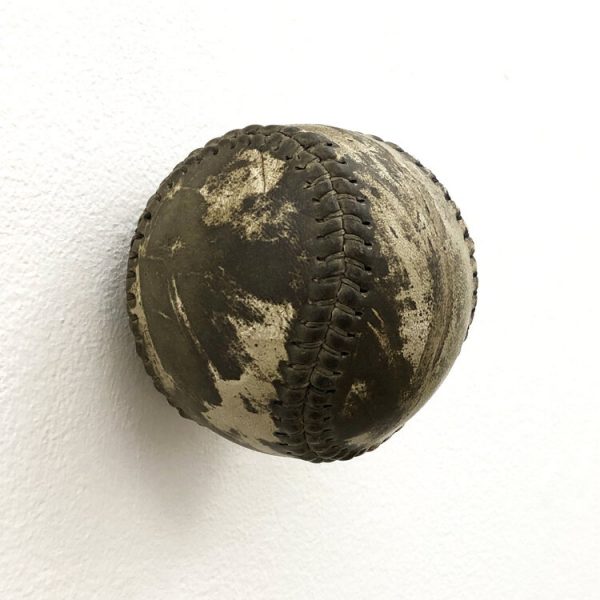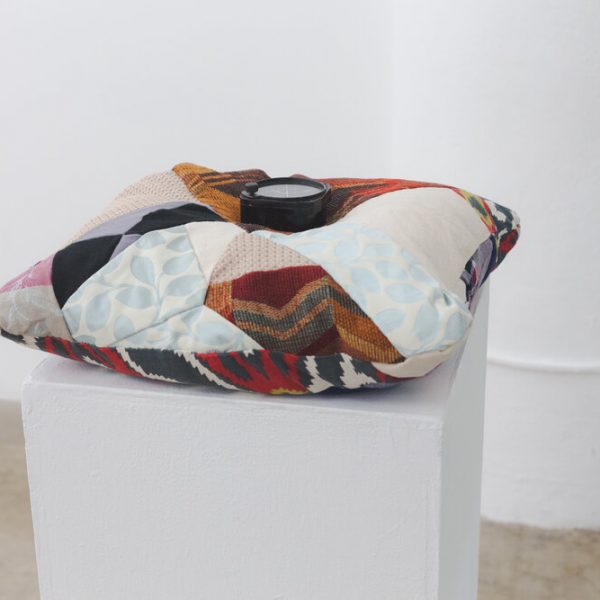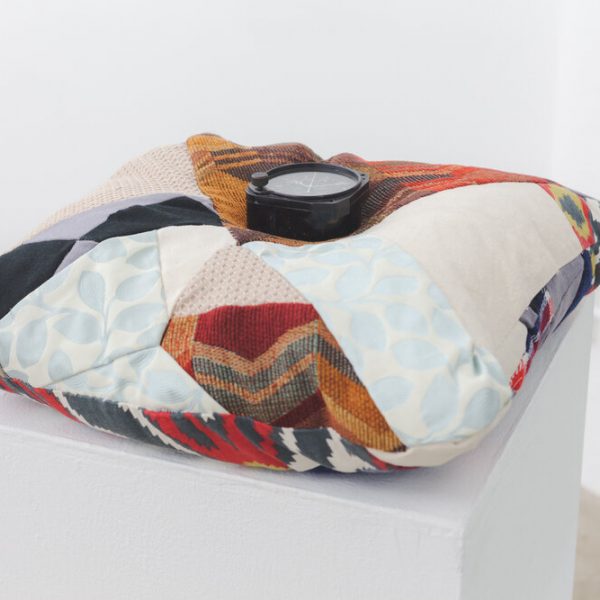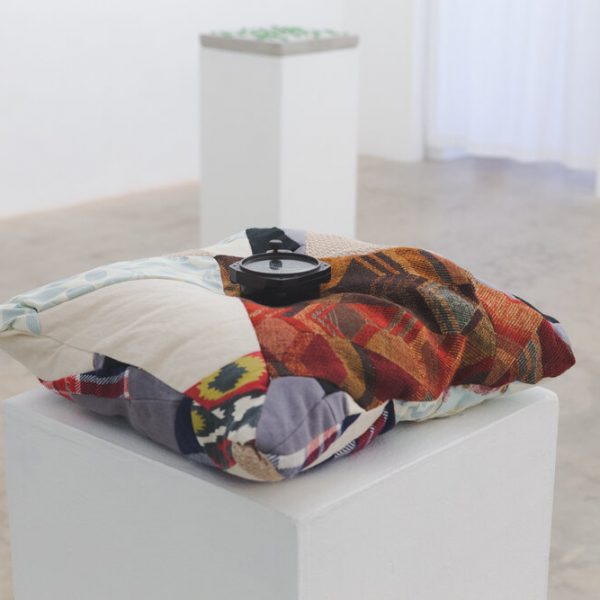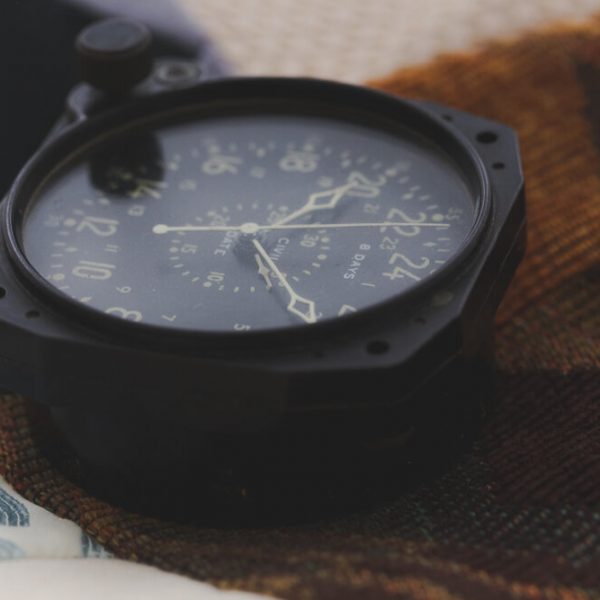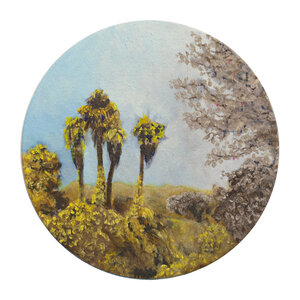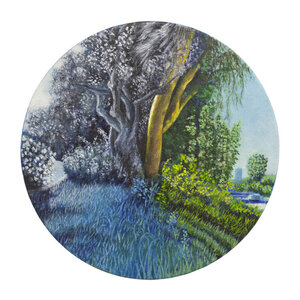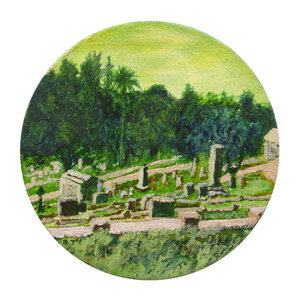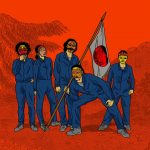Emily Jones : Chris I haven’t seen you in person for a while because of the Covid-19 pandemic, but I was able to visit your show recently and really enjoyed it. Can you tell me where you got the idea for the title of your show?
Emily Jones : Walking into the space I immediately noticed your installation with a tiny cooler and beers waiting for us to share. What influenced you to make that piece?
Chris Rivas : It was definitely meant for people to take beers and enjoy in order to participate with the work. That installation came from a recent memory where I shared Modelos with my roommate and some other tenants in our apartment building during the first quarantine of the Covid-19 pandemic. My roommate and I didn’t have a good relationship with these tenants when they first moved in, but after about two months into quarantine we ran into them in the garage one night and they decided to offer us beers and have a conversation with us despite past animosity. I think this happened because we all have a deep need to socialize and we all ended up having an amazing time getting to know each other. All of the works in the show reference a shared memory with people I have a personal relationship with.
Emily Jones : It’s interesting how these negative experiences you had with these tenants made that interaction so memorable. It feels like that is what we need to be doing right now, to break down barriers and find touchstone moments for us to share with each other, to look past our egos, open up and allow for those moments to happen. “Midnight Modelo” feels like a Rosetta Stone for the rest of the works in the show. Can you touch on how that idea of memories extends through the exhibition?
Chris Rivas : Yea, so I was mostly focused on figure painting when I was in school, I always painted people I had a relationship with. In this case I used objects to activate those memories instead of a portrait. For example, the Endless Go piece came from the board game Go which is similar to chess. I learned how to play it from a friend in Grad School and continued to play with other friends afterwards. I think games like this one promote more collaboration than competition. It was kind of interesting to think about how we spend meaningful time with people differently than others.
Emily Jones : I love this romanticized vision of two friends sitting down to play a potentially contentious game, but instead are sharing an enjoyable moment of time together. It takes equal effort for them to come together in order to play the game. This in person interaction feels idealized now that we can’t socialize in person because of the virus…
Chris Rivas : Right now, we are able to use technology to socialize and so all of our interactions are digital. We also have access to information that lets us count the death toll from Covid-19 daily, which is a constant reminder that our phones and computers are the only safe options right now.
Emily Jones : We’re making memories differently because we don’t have a physical object to interact with. It takes more effort but it’s worth it because we don’t have another option. It’s so different when you have something tactile like your softball piece. I actually thought it was real until you told me it’s a plaster sculpture. Can you tell me more about that one?
Chris Rivas : When I was making it I was experimenting with different materials, and once I made the plaster cast I tried using lithography ink to give it the color and it worked perfectly. It’s the oldest piece in the show. I made it in grad school from a real softball that I got from my ex who I was dating at the time, and so it references the relationship I had with her. Obviously, many people know that ending a relationship is painful but just like the Modelo piece, every relationship is complicated, and you can’t separate the good from the bad. Sometimes it’s the negative experiences that make us more grateful for the positive ones we’re fortunate to have.
Emily Jones : You’re not discarding these memories, you’re preserving them. I remember we discussed how you were thinking about the way we preserve objects in institutions and how those aesthetics were used to frame the works in the show. Can you elaborate on that?
Chris Rivas : One example is the pillow piece. It was made from sewn fabric that I also used as the surface for different figurative paintings. As I sewed the fabrics together for paintings they felt more like quilts. I was thinking about how I could display the pillow and when I thought about pillows in an institution like a museum, I thought of display pillows where the object of value is placed on top of it. It’s the pillow that adds to that feeling that the object it’s cradling is more valuable. In this case it’s a clock from a fighter plane used in WW2 that was given to me from a close family friend who passed away a few years ago.
Emily Jones : The display pillow isn’t utilitarian. It’s again talking about this relationship you have with this person who gave you the clock just like all the other pieces in the show. It feels like a portrait and starts to “other” the experience of death. It brings up the death that’s happening around us right now, there’s no national reckoning for all these people dying from Covid-19.
Chris Rivas : Of course, because history is always told with a bias, and so many people won’t be able to tell their full stories of this time because they lack that privilege. As artists we have a responsibility because when we make objects, we are choosing certain stories and perspectives over others. I’ve always tried to be aware of culture appropriation in my work too and I think the important thing to remember is that cultures are going to continue to evolve and influence each other no matter what.
Emily Jones : Right, it’s like the difference between the melting pot and salad bowl analogy for cultural integration in our country. The root of your involvement with the Go game is that your friend introduced it to you and that exposure to that game becomes a part of you. You acknowledge we aren’t working in a vacuum. We have to have an understanding of the digital world we are working in.
ADDITIONAL CONTENT
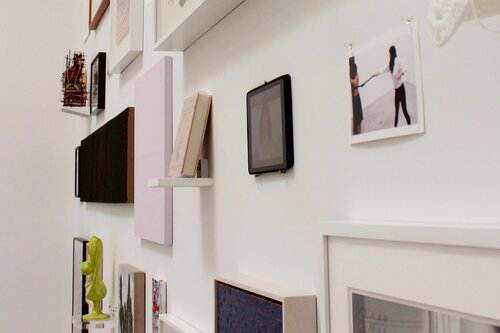
FIVE
June 22 - August 10, 2019

Artist Spotlight
Rakeem Cunningham


